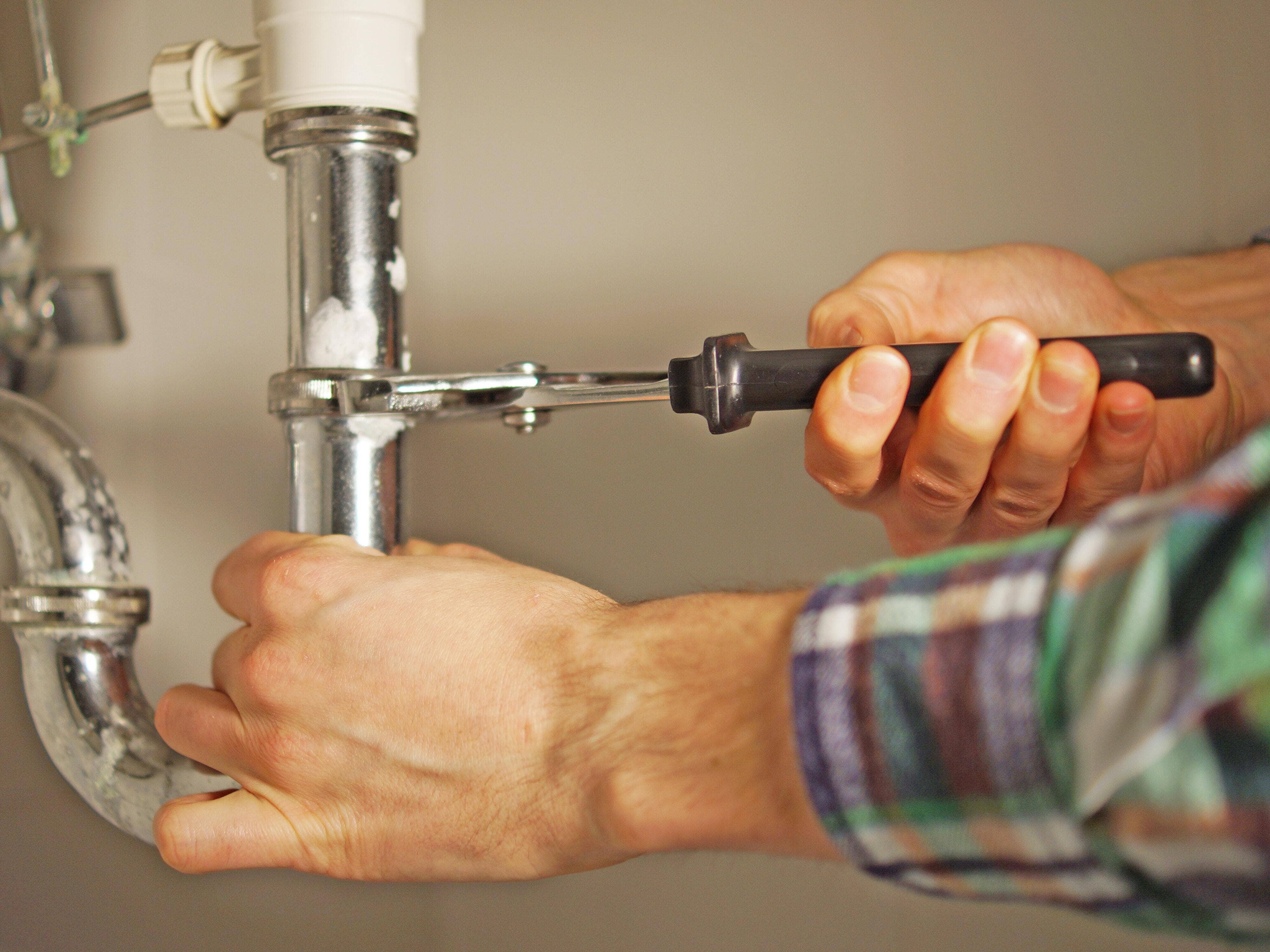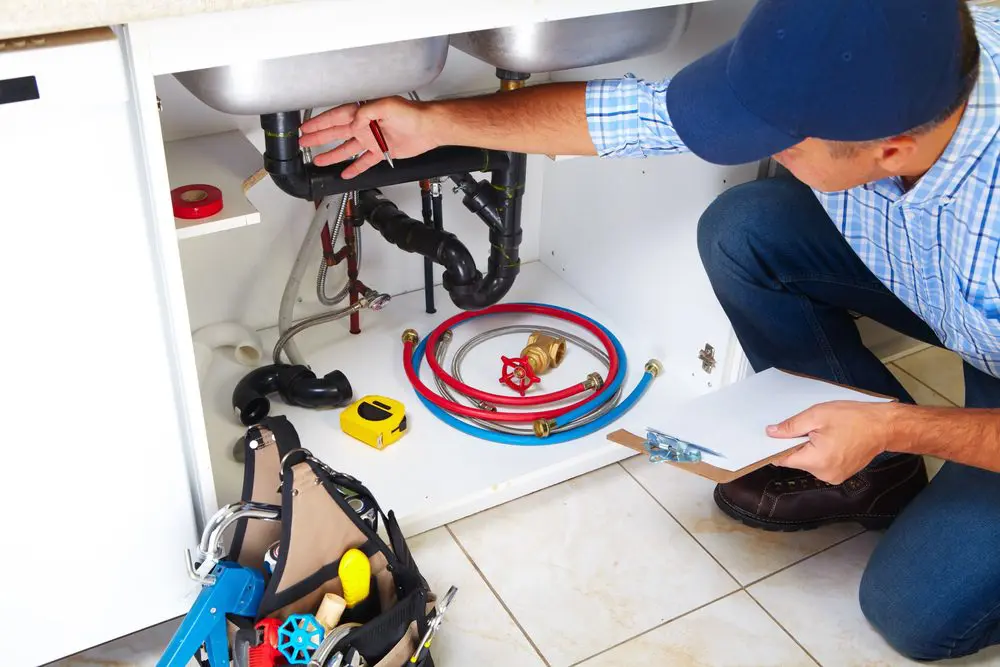Six Factors Leading To The Degradation Of Your Plumbing Appliances
Six Factors Leading To The Degradation Of Your Plumbing Appliances
Blog Article
Everybody is bound to have their own piece of advice on the subject of Leak Detection and Repair Without Destroying Your Home.

The trick to long lasting devices, unsurprisingly, appertains upkeep. There's no hard and fast rule that can assure your plumbing home appliances a lengthy wear, but you can avoid unneeded damage and also repair services by avoiding negative plumbing habits.
You should stop doing these 6 points else you'll keep calling your plumber over for minor faults.
Flushing everything
Yes, your toilet drainpipe results in the sewers, however that does not suggest you should dispose just anything away. Several 'flushable' materials are in fact fantastic clog beginners, for example floss. Asides keeping apparent non-flushable products like cords as well as plastics out of your commode, you need to additionally prevent flushing cotton swab, menstruation items, wipes, daipers as well as prophylactics down the commode drainpipe.
Putting oil in the sink
We understand correctly dealing with grease after a hearty meal is a pain. Yet merely putting it down the drain can do long-term injury to your pipelines. "The fat as well as oil can obstruct your drainpipe terribly sufficient to compel you to call a plumber," clarifies Dawson. "Plumbing works best when it's well cared for-- not abused with grease."
Making use of excessive drain cleaner
Making use of a drain cleaner more than one or two times a month is a sign that something serious is taking place within your pipes. Currently, as opposed to dealing with the main problem, you go for a quick fix; a carbonated drain cleaner. Rightfully, a drainpipe cleaner will care for the obstruction, however at what price?
The chemicals in a drainpipe cleanser can quicken the corrosion of your pipelines. Include that to whatever underlying problem is triggering the clog and you may need to a significant problem on your hands.
If you experience way too many clogs, call your emergency plumber rather than making use of a drainpipe cleaner.
Not washing recipes prior to loading them into the dishwashing machine
it's called a dishwasher, but tossing in meals, pots, and pans covered in large food fragments can actually create some major damages to the home appliance, resulting in long-term issues down the line. "Home owners might need to obtain their dishwasher fixed regularly if they do not rinse their recipes prior to loading, or at the very least eliminate bigger food pieces," explains Audrey Monell, owner of Forrest Anderson Plumbing and also A/c in Glendale, Arizona. "Food that obtains stuck on dishes creates the dishwasher to work harder, which can wear down components faster, leading to troubles."
DIYing everything
With plumbing, a stitch in time really does save 9. You can protect against a fullblown plumbing emergency by calling your plumber at the right time.
You may have discovered a couple of plumbing hacks from your daddy, however you ought to know where to draw the line and call a professional. For example, you might have the ability to deal with an obstruction on your own, however you should not try to alter a pipe. You can inequality pipelines or overtighten a bolt, causing more injury and also damages than you thought. Calling a plumber is a safe and also economical decision.
Not changing your dish washer pipes
One very easy means to ensure that you use your dishwasher for many years is to change the hose at the very least as soon as in five years. This additionally applies for washing equipment hose pipes.
In time, food particles, soap and also oil can create clogs within your pipes. Replacing them promptly will certainly avoid any type of presure accumulate that can harm the inner functions of your dish washer or washing maker.
An enhanced steel braided hose pipe does a wonderful work of prolonging your machine's use time.
No winter safety measures
Extreme weather conditions are bad for your pipes, specifically if they're made from steel. You must insulate your exposed pipes, as well as your water tank, even if you have a water heater. You should additionally shut off your garden tube valve and any other outside water channels. These networks are outlets for cool; you pipes can begin to freeze from outdoors if you don't.
How Hard Water Damages Your Plumbing and Appliances
Hard water is no stranger to most households across America. This silent invader affects 85% of homes in the United States every day, wreaking havoc on pipes, plumbing fixtures, and water-using appliances.
Should you become a victim of hard water, you must understand exactly what it is and how it affects your plumbing and appliances. This will help you determine the correct measures to put in place to fix or prevent any problems that may arise.
First off, what exactly is “hard” water?
In short, “hard water” is used to describe water that contains relatively high amounts of dissolved minerals, primarily calcium and magnesium, and a host of trace metals. When rainwater falls from the sky (usually in a pure form), it absorbs the hardness minerals from rocks and soil, which changes it from soft to hard water.
What about my plumbing and appliances?
Mineral deposits from hard water can cause buildup on tubs, shower, sinks, faucets. But that’s only a small scratch of the surface. Those minerals can gradually build up inside pipes, fixtures, water heaters, washing machines, and dishwashers. Once they accumulate in those areas, they can clog pipes and create major problems throughout your plumbing system, from reduced water flow to increased pressure on pipes and fixtures.
This limescale buildup might affect some appliances, causing them to operate less efficiently and wear down faster. And the result? Higher energy bills, more (costly) plumbing replacements and repairs, and damaged appliances.
Keep in mind that certain types of plumbing are more susceptible to clogging than others. Copper, PVC, and PEX pipes are more resistant to hard water buildup and corrosion, but they can still get clogged or completely blocked by scale deposits.
How do I know if my water is hard?
White limescale buildup on plumbing fixtures (or any of the other signs mentioned above) is usually a good sign that your water is hard. If you suspect that you have hard water, you can simply shake up a small amount of dish soap and water in a closed container. If the mixture doesn’t create a lot of suds, you probably have hard water.
The most precise method, however, is to test your water with a DIY test kit (sold online or at local home centers or hardware stores) or send a water sample from your tap to a local lab to be tested. Be sure that you understand the nature of the test, the water condition being measured, and the significance of the test results.
Another way to obtain an estimate of water hardness is to check your annual water quality report to see if your water provider has reported any instance(s) of water hardness in your water supply.
https://www.springwellwater.com/how-hard-water-damages-your-plumbing-and-appliances/

I ran across that page about Can Hard Water Ruin Your Appliances? while browsing on the search engines. Appreciated our blog posting? Please share it. Let another person discover it. Many thanks for taking the time to read it.
Get Started Report this page